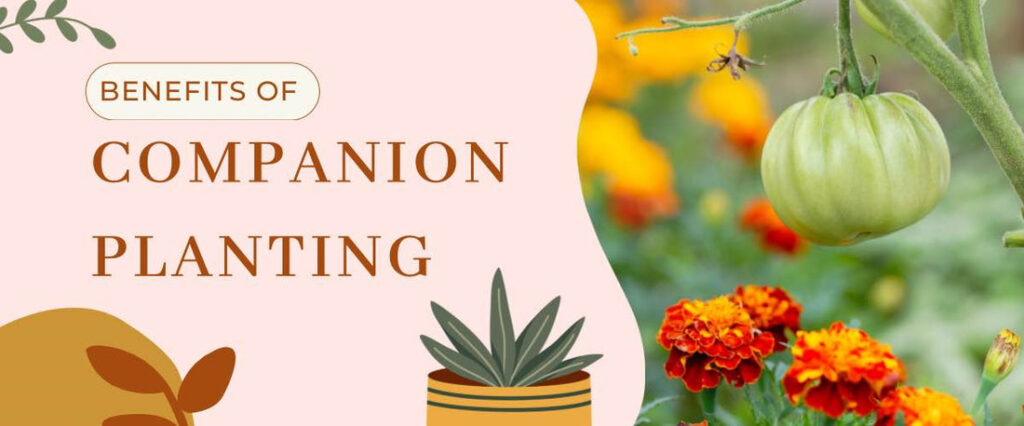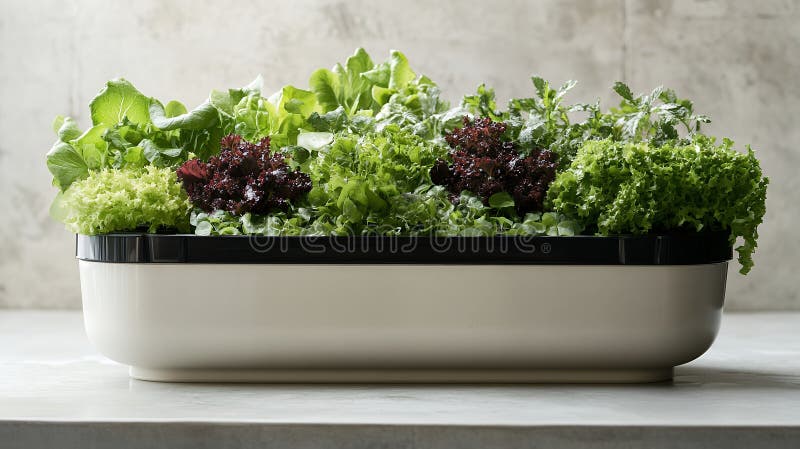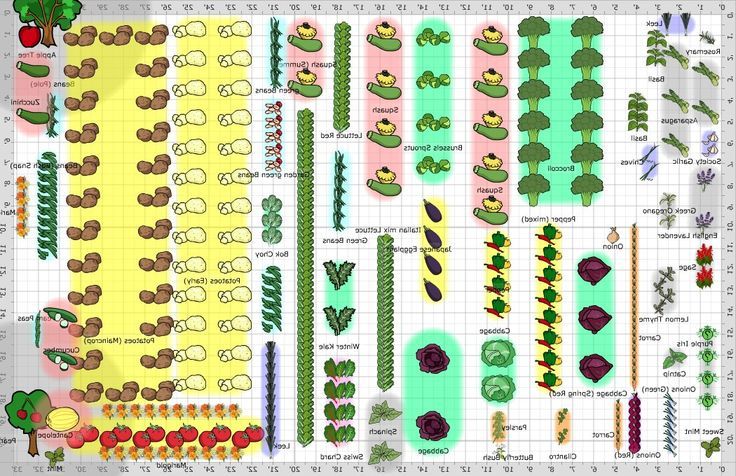
Unlocking the Garden’s Secrets: Discover the Amazing Benefits of Companion Planting Herbs
Gardening is more than just a hobby; it’s a connection to the earth, a way to nurture life, and a source of endless fascination. And within the vibrant tapestry of a garden, the practice of companion planting stands out as a particularly enchanting and effective method. This age-old technique, which involves strategically placing different plant species near each other to create a mutually beneficial relationship, can transform your garden into a thriving ecosystem. In this comprehensive guide, we’ll delve deep into the captivating world of companion planting herbs, exploring the numerous advantages they offer and providing you with the knowledge to cultivate a healthier, more productive, and more beautiful garden.
What is Companion Planting? A Symphony of the Garden
Companion planting is essentially the art of gardening harmoniously. It’s about understanding the unique needs and characteristics of different plants and arranging them in a way that enhances their growth, protects them from pests, and boosts their overall well-being. Think of it as creating a community within your garden, where each plant plays a vital role in supporting the others. This approach mimics the natural ecosystems found in the wild, where plants have evolved to thrive in the presence of specific companions.
The benefits of companion planting are diverse and far-reaching. It’s a sustainable gardening practice that reduces the need for synthetic pesticides and fertilizers, promotes biodiversity, and fosters a healthier environment for your plants. By carefully selecting your plant pairings, you can create a garden that is not only visually appealing but also remarkably resilient.
The Marvelous World of Herbs: Nature’s Tiny Powerhouses
Herbs, with their aromatic leaves and potent properties, are the unsung heroes of the garden. They offer a wealth of benefits, from enhancing the flavor of our food to providing medicinal remedies. But their contributions extend far beyond the kitchen and the medicine cabinet. Herbs are also exceptional companion plants, offering a range of advantages to their garden neighbors.
Herbs possess unique qualities that make them ideal companions. They can attract beneficial insects, repel harmful pests, improve soil health, and even enhance the flavor of other plants. By integrating herbs into your companion planting scheme, you can create a thriving garden ecosystem that is both beautiful and productive.
Benefits of Companion Planting Herbs: A Gardener’s Delight
The advantages of companion planting herbs are plentiful, making them an invaluable addition to any garden. Let’s explore some of the key benefits:
1. Pest Control: Nature’s Own Defense System
One of the most significant benefits of companion planting herbs is their ability to deter pests naturally. Many herbs emit strong scents that repel common garden pests, such as aphids, cabbage moths, and nematodes. By strategically planting these herbs near vulnerable plants, you can create a natural barrier against these unwanted visitors.
Here are some examples of herbs that excel at pest control:
- Basil: Repels flies, mosquitoes, and aphids.
- Mint: Deterrent for ants, aphids, cabbage moths, and flea beetles.
- Rosemary: Keeps away cabbage moths, bean beetles, and carrot flies.
- Thyme: Repels cabbage worms and whiteflies.
- Chives: A general pest deterrent and can help deter aphids and Japanese beetles.
By incorporating these herbs into your garden, you can significantly reduce the need for chemical pesticides, creating a healthier environment for your plants and yourself.
2. Attracting Beneficial Insects: Allies in the Garden War
While some herbs repel pests, others attract beneficial insects that prey on them. These beneficial insects, such as ladybugs, lacewings, and hoverflies, are invaluable allies in the fight against garden pests. They help to keep pest populations in check, preventing them from causing significant damage to your plants.
Herbs that are particularly effective at attracting beneficial insects include:
- Dill: Attracts ladybugs and hoverflies.
- Fennel: Attracts ladybugs and hoverflies.
- Cilantro: Attracts beneficial insects.
- Chamomile: Attracts beneficial insects.
By planting these herbs, you can create a welcoming environment for beneficial insects, encouraging them to take up residence in your garden and provide natural pest control.
3. Improving Soil Health: Nourishing the Roots
Some herbs have the remarkable ability to improve soil health. They can help to enrich the soil, improve drainage, and even fix nitrogen, making it more available to other plants. This can lead to healthier plants with stronger root systems.
Here are some herbs that are known for their soil-improving properties:
- Chamomile: Improves soil health.
- Comfrey: Accumulates nutrients from the soil. (Note: Comfrey is technically not an herb, but a beneficial plant often used in gardens.)
- Borage: Improves soil health and attracts pollinators.
By incorporating these herbs into your garden, you can create a more fertile and productive environment for your plants.
4. Enhancing Flavor: A Culinary Delight
Companion planting herbs can also enhance the flavor of other plants. Some herbs, when planted near certain vegetables, can improve their taste and aroma. This is a delightful bonus for any gardener who enjoys fresh, flavorful produce.
For example:
- Basil: Enhances the flavor of tomatoes.
- Rosemary: Enhances the flavor of beans and cabbage.
- Oregano: Enhances the flavor of tomatoes and peppers.
By strategically planting these herbs, you can elevate the taste of your homegrown vegetables, making your culinary creations even more enjoyable.
5. Weed Suppression: Keeping the Garden Tidy
Certain herbs, when planted densely, can act as a natural weed suppressant. They create a living mulch that prevents weeds from taking root and competing with your plants for resources. This can significantly reduce the amount of time and effort you spend weeding your garden.
Herbs that are effective weed suppressants include:
- Mint: Can spread aggressively and help suppress weeds.
- Thyme: Forms a dense mat that can help prevent weed growth.
- Chamomile: Can act as a ground cover and suppress weeds.
By incorporating these herbs into your garden, you can create a more tidy and manageable space.
Companion Planting Herb Combinations: Putting Theory into Practice
Now that you understand the many benefits of companion planting herbs, let’s explore some specific combinations that can thrive in your garden:
1. Tomatoes and Basil: A Match Made in the Garden
This classic pairing is a favorite among gardeners. Basil repels tomato hornworms, whiteflies, and aphids, protecting the tomato plants from these pests. It also enhances the flavor of the tomatoes, making them even more delicious. Plant basil around your tomato plants to create a mutually beneficial relationship.
2. Carrots and Rosemary: A Fragrant Defense
Rosemary is a natural deterrent for carrot flies, which can wreak havoc on carrot crops. Planting rosemary near your carrots can help protect them from these pests. Rosemary also attracts beneficial insects, further enhancing its value as a companion plant.
3. Cabbage and Thyme: A Pest-Free Partnership
Thyme repels cabbage worms, which are a common pest of cabbage plants. Planting thyme around your cabbage plants can help protect them from these pests. Thyme also has the added benefit of attracting beneficial insects.
4. Beans and Rosemary: A Flavorful and Protective Alliance
Rosemary can enhance the flavor of beans and also deter bean beetles. Planting rosemary near your bean plants can provide both flavor and protection.
5. Peppers and Basil: A Spicy and Aromatic Duo
Similar to tomatoes, basil can benefit pepper plants by repelling pests and potentially enhancing the flavor of the peppers. Plant basil near your pepper plants for a mutually beneficial relationship.
Tips for Successful Companion Planting with Herbs
To maximize the benefits of companion planting herbs, keep these tips in mind:
- Research: Before planting, research the specific needs and characteristics of the plants you want to pair. Not all plant combinations are beneficial.
- Consider Sunlight and Water Needs: Ensure that the plants you choose have similar sunlight and water requirements.
- Spacing: Provide adequate spacing between plants to allow for proper air circulation and growth.
- Succession Planting: Plant herbs in succession to ensure a continuous supply of beneficial insects and pest control.
- Observe Your Garden: Pay attention to how your plants are interacting and make adjustments as needed.
Beyond the Basics: Exploring Other Companion Plants
While herbs are excellent companion plants, they aren’t the only options. Consider incorporating other beneficial plants into your garden to create an even more thriving ecosystem:
- Marigolds: Repel nematodes and other soil pests.
- Calendula: Attracts beneficial insects and repels pests.
- Nasturtiums: Trap aphids and other pests.
- Borage: Attracts pollinators and improves soil health.
By diversifying your garden with a variety of companion plants, you can create a more resilient and productive ecosystem.
Conclusion: Cultivating a Thriving Garden with the Power of Herbs
Companion planting with herbs is a rewarding and effective way to enhance your garden’s health, beauty, and productivity. By understanding the unique benefits of herbs and strategically pairing them with other plants, you can create a thriving ecosystem that is both visually appealing and remarkably resilient. Embrace the power of herbs and unlock the secrets to a truly flourishing garden. Happy gardening!


